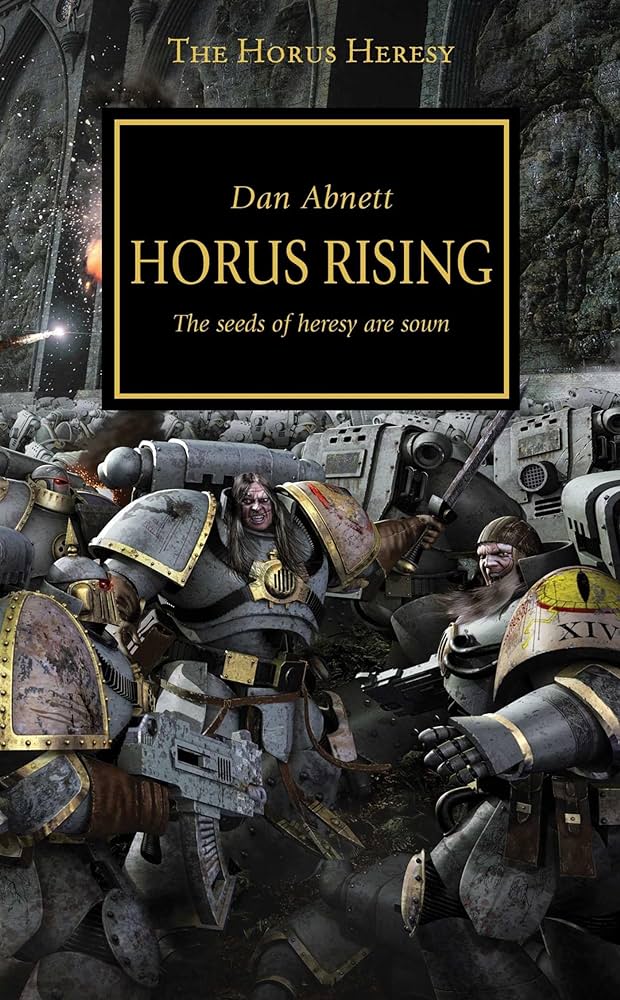
Synopsis
It is the 31st millennium. Under the benevolent leadership of the Immortal Emperor, the Imperium of Man has stretched out across the galaxy. It is a golden age of discovery and conquest. But now, on the eve of victory, the Emperor leaves the front lines, entrusting the great crusade to his favourite son, Horus. Promoted to Warmaster, can the idealistic Horus carry out the Emperor’s grand plan, or will this promotion sow the seeds of heresy amongst his brothers? Horus Rising is the first chapter in the epic tale of the Horus Heresy, a galactic civil war that threatened to bring about the extinction of humanity.
Review
“I was there,” he would say afterwards, until afterwards became a time quite devoid of laughter. “I was there, the day Horus slew the Emperor.”
And thus begins this epic, 54-book saga (not including the 10 book sequel series, the Siege of Terra), charting the meteoric rise and devastating downfall of one of the finest Primarchs to ever live, Horus Lupercal.
“I know that words cannot move mountains, but they can move the multitude – we’ve proven that time and time again. People are more ready to fight and die for a word than for anything else. Words shape thought, stir feeling, and force action. They kill and revive, corrupt and cure.”
I could talk about the Warhammer 40K setting for days on end, however I’ll try to be succinct. The Horus Heresy is a pivotal point in this enormous, galaxy-spanning setting, a point in which the 40K universe becomes what it is today; this ultra zealous, bleak dystopian, filled with chaos daemons, vicious xenos creatures, countless Space Marine splinter factions and plenty of in-house fighting within the Imperium of Man itself. Basically, it’s a shit time to exist in. And for those of us in the fanbase, the Horus Heresy permeates through all talks of lore. All roads lead to the Heresy it seems.
In terms of the Horus Heresy era itself, this is set 10,000 years prior to the main setting, in a time know as the Great Crusade. The Emperor of Man has lead a vast army across the galaxy, reuniting the disparate human worlds together under the banner of the Imperium, either by force or fear. Following him is his 20 sons, legendary figures and the pinnacle of the human race, giants with extreme intelligence, battle knowledge, handsome beyond all measure and warriors through and through. These sons are Primarchs, each leading their own legions with their own customs and heraldry, on this conquest of the stars. At the time of when we enter this novel, The Emperor has just stood down as the leader of this crusade to return to rule from the Holy World of Terra, and has passed the leadership of the crusade onto his favourite son, The Warmaster Horus.
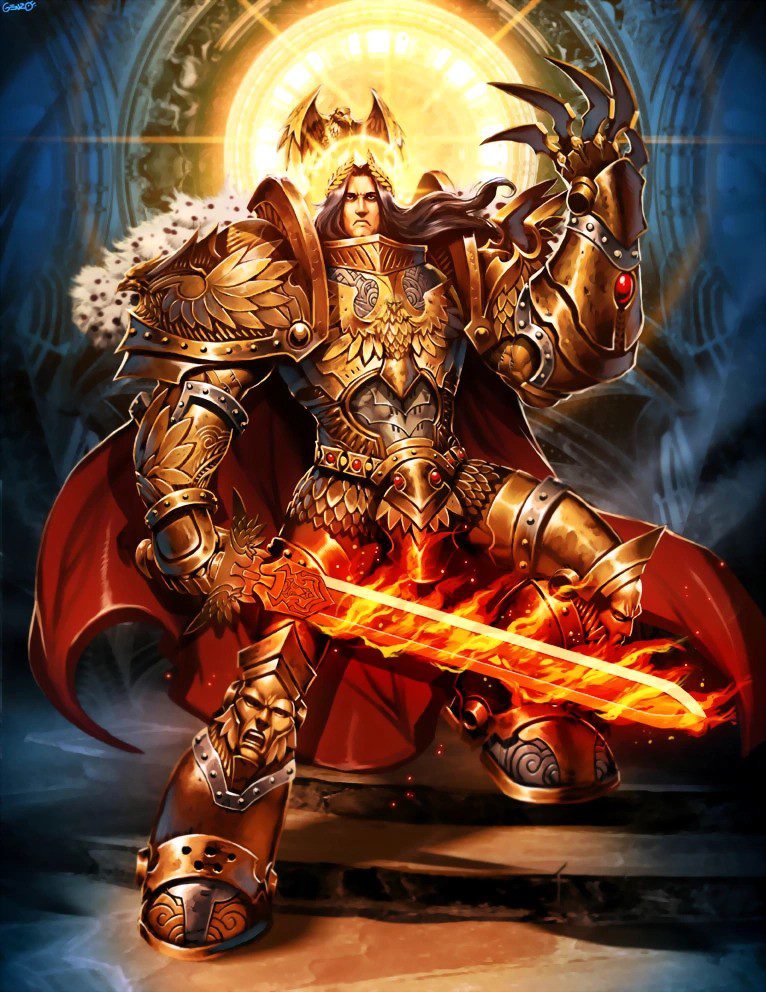
Entering into this book, I was expecting (like a lot of 40K fiction) to be faced with a bunch of macho bravado as the Space Marines (hulking figures in power armour bred to be the perfect killing machines) tear a new asshole into whichever enemy faction happens to be in the way, bolter fire and ripping chainsword aplenty. And whilst my brutal blood thirsty cravings were satisfied, what I wasn’t expecting was a deeply philosophical novel about the nature of good & evil; what is right & wrong; is there even an answer? It speaks of the nature of brotherhood, of betrayal, of Imperial rule and unwavering loyalty in the face of moral challenges. Mortality and the comparison between the mortal and immortal being; history & the legacy we leave vs what history remembers us as; secrecy and treason; rituals and customs vs superstition and religion; the known and understandable vs the unknown and unfathomable. The list goes on. Abnett (a writer well beloved by the Warhammer community) understands the depth of this universe maybe more than any other Black Library author, and his grip on the ideologies and motifs within this setting goes beyond surface level “war and explosions and blasting shit apart”. He explores these depths in such a way that it almost felt like a criticism of the setting itself, like he was trying to deconstruct what the 41st Millenium of Mankind was through the perception of what the 31st Millennium used to be. Whilst one of Warhammer 40k’s biggest running themes is stagnation (the more things change, the more they stay the same), Horus Rising explores the bigger differences between these two points in time. Where both still have the bigger elements sure as heavily-militarised and warmongering mindset, Space Marines etc. there are some fundamental differences. I could continue to drone on, however, I do believe that Horus Rising is best read with at least a partial knowledge of the main setting itself, as this helped to amplify my enjoyment of Abnett’s exploration. There’s hundreds of YouTube videos out there that give you an introduction into all things 40k, most are pretty good!
“The difference between gods and daemons largely depends upon where one is standing at the time.”
Anyway enough rambling, here comes some things about the book itself! Abnett is a great writer in his own sense, and he incorporates a strange “semi-nonlinear” narrative, as in each chapter takes places one after the other, but within the chapters themselves the events may be non-linear (a great example is one where our arguably main character Garviel Loken recounts a battle that has just taken place to his Rememberancer, Mersadie Oliton, and we flashback and forth before the retelling and the battle itself). The characters, of which there are many, were confusing to keep track of at first, but throughout the book their purpose and role within the events happening and the story being told become clearer. The worldbuilding does not hold your hand, and you may be spending some time googling certain phrases, macguffins and buzzwords from time to time, however this story is so deeply rooted into its own setting and the legacy of this era that it only helps to enhance the appreciation. In terms of plot, this does take a back seat, but this is so Abnett can do what he does and use the other elements to (say it with me kids) explore the themes of the setting! What the plot does revolve around however is what happens in the immediate aftermath of Horus’s rise to Warmaster, along with some events that shake the status quo of long held ideals both within and without it’s key characters.
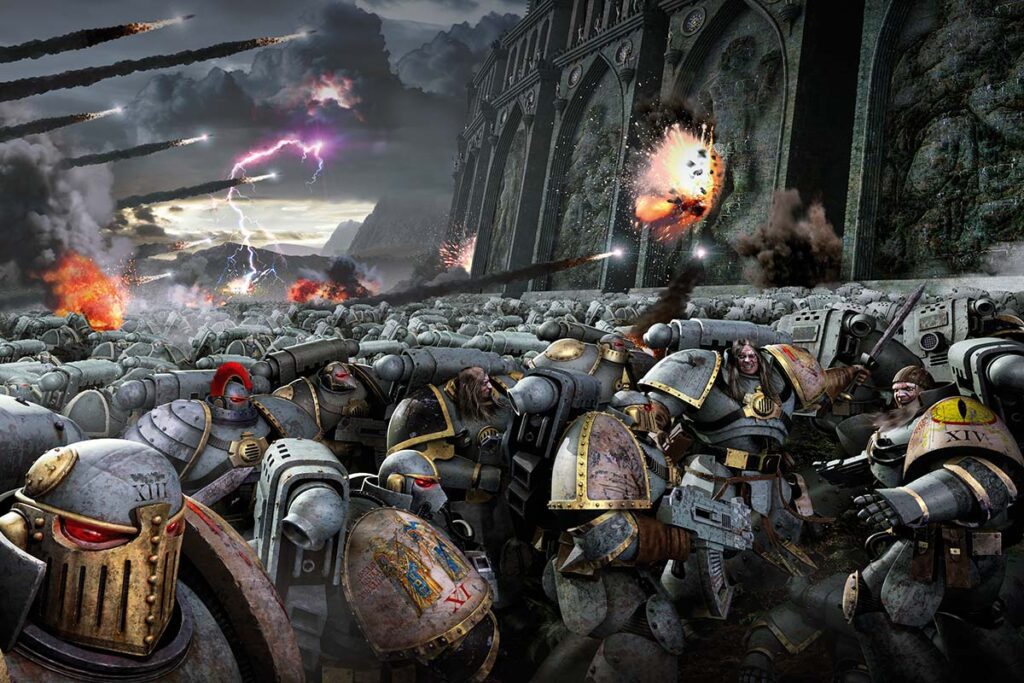
I’ve said this before but I’ll say it again; The Horus Heresy is the sci-fi version of Malazan (but Warhammer came first!). It’s got a shit load of characters, a shit load of books, a MASSIVE world full of its own cultures, customs and world-destroying weaponry. It’s complex, it doesn’t hold your hand… and it’s great! A modern day sci-fi tragedy told in 54 volumes, Horus Rising is the beginning & the birth of this momentous era in one of the most expansive sci-fi universes ever created.







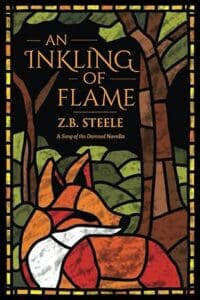
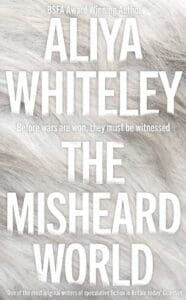

Leave a Reply